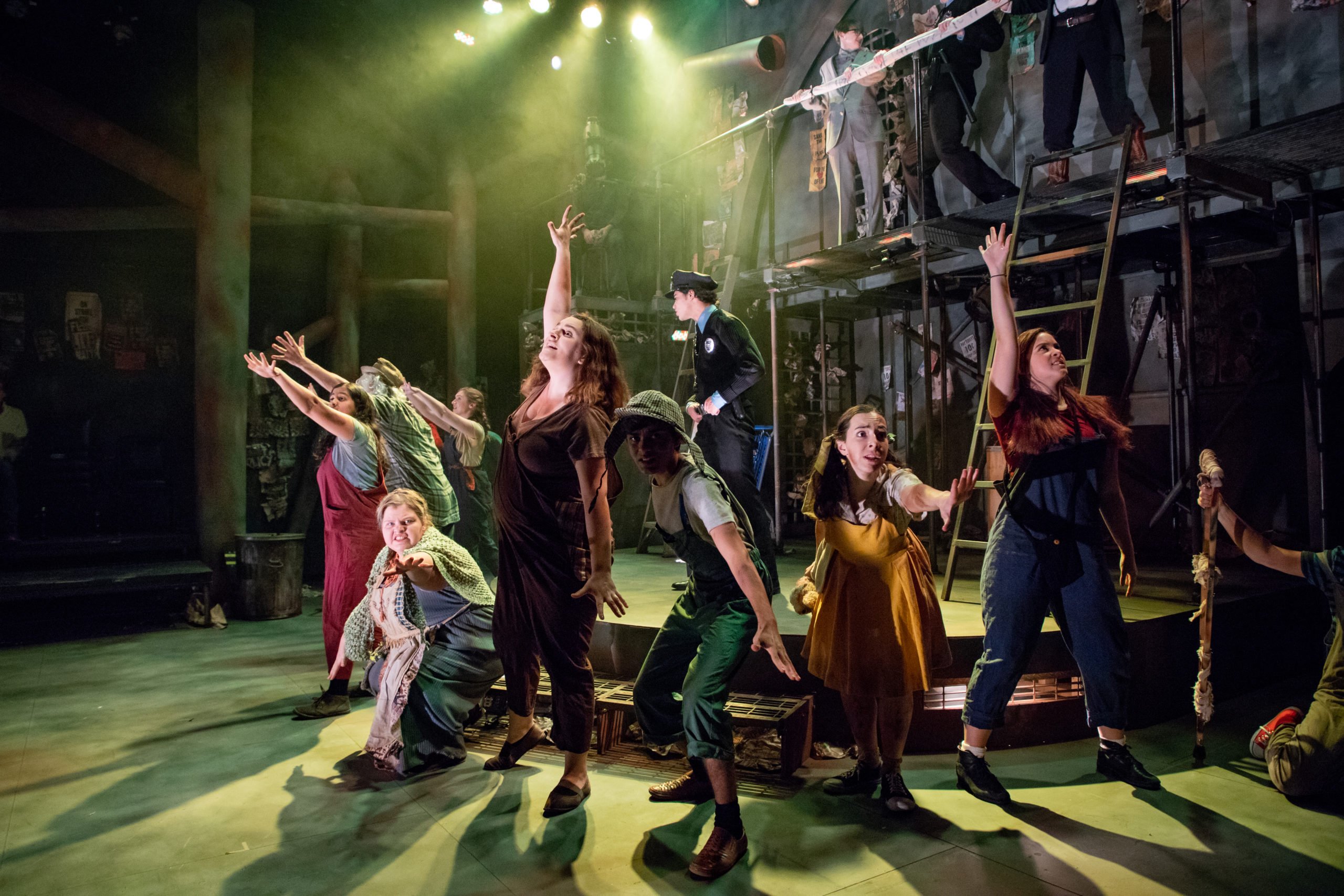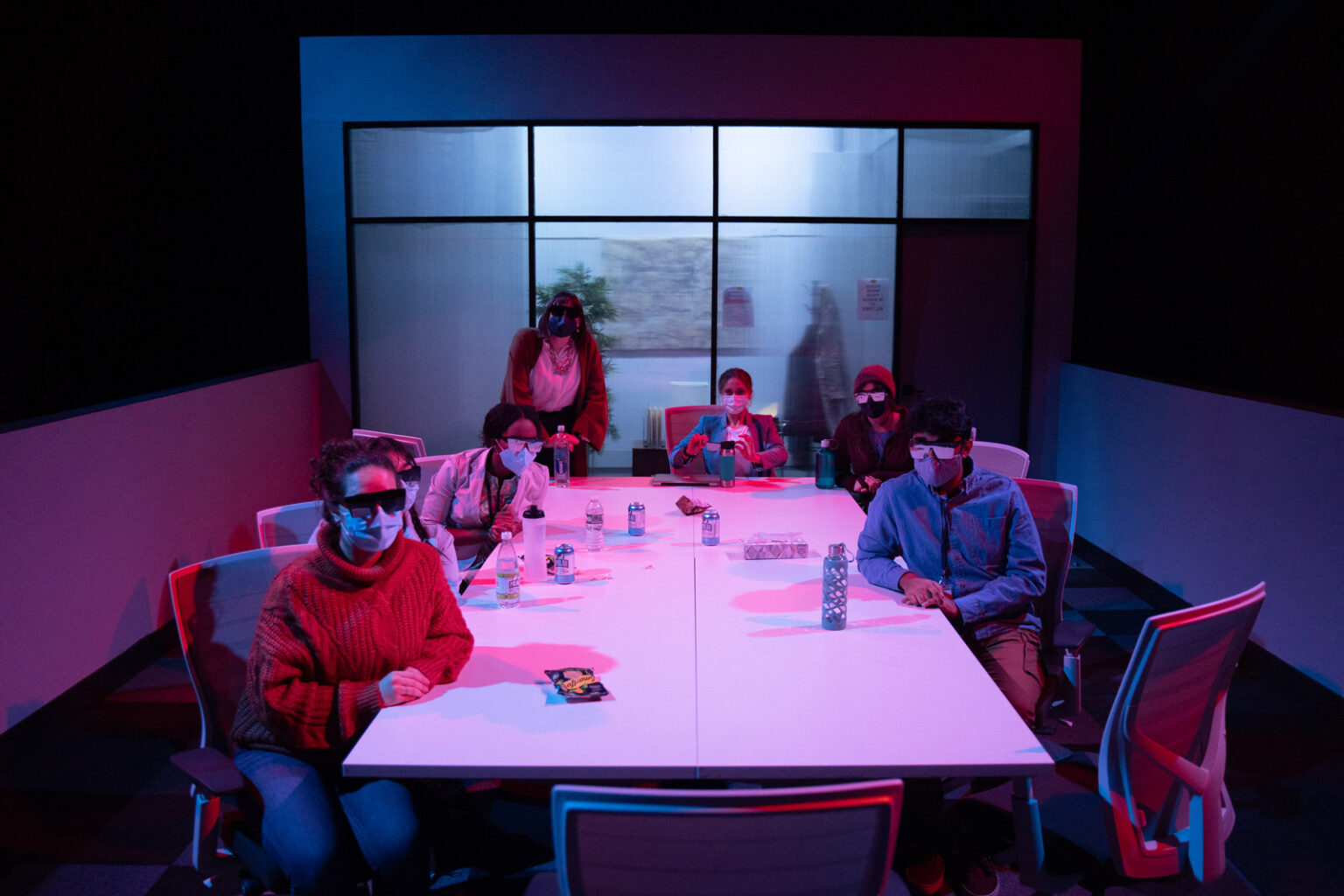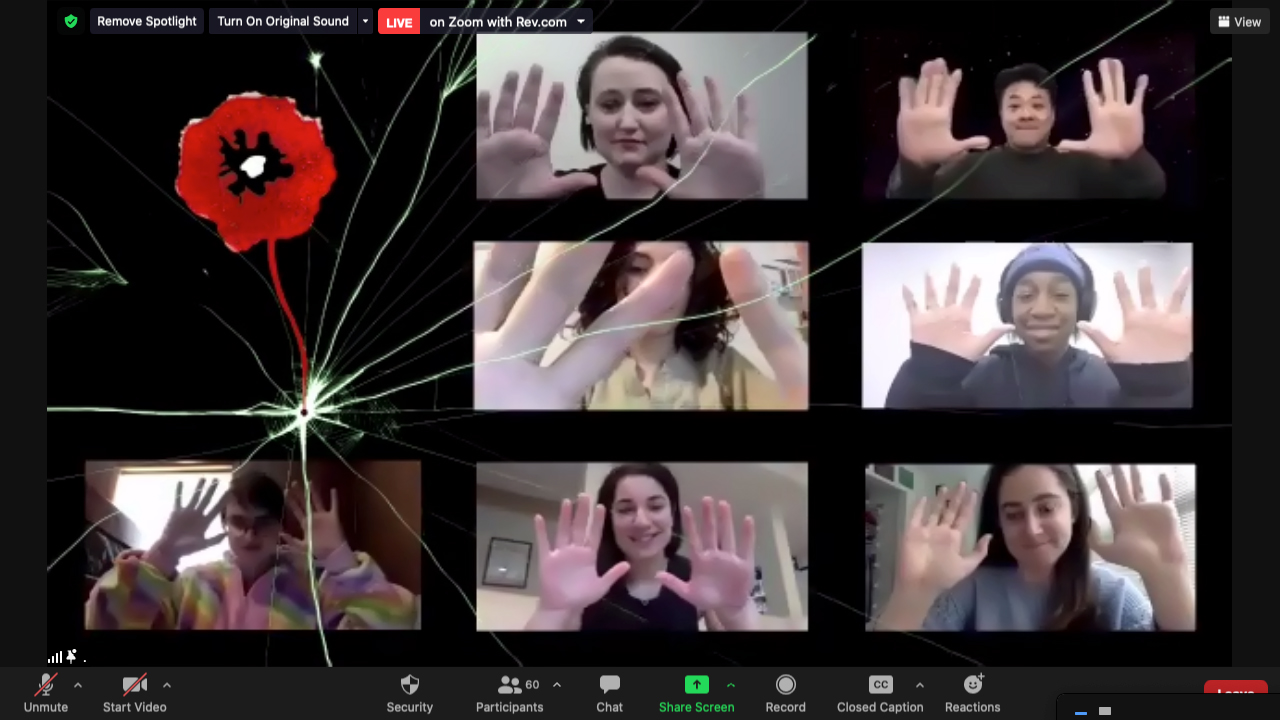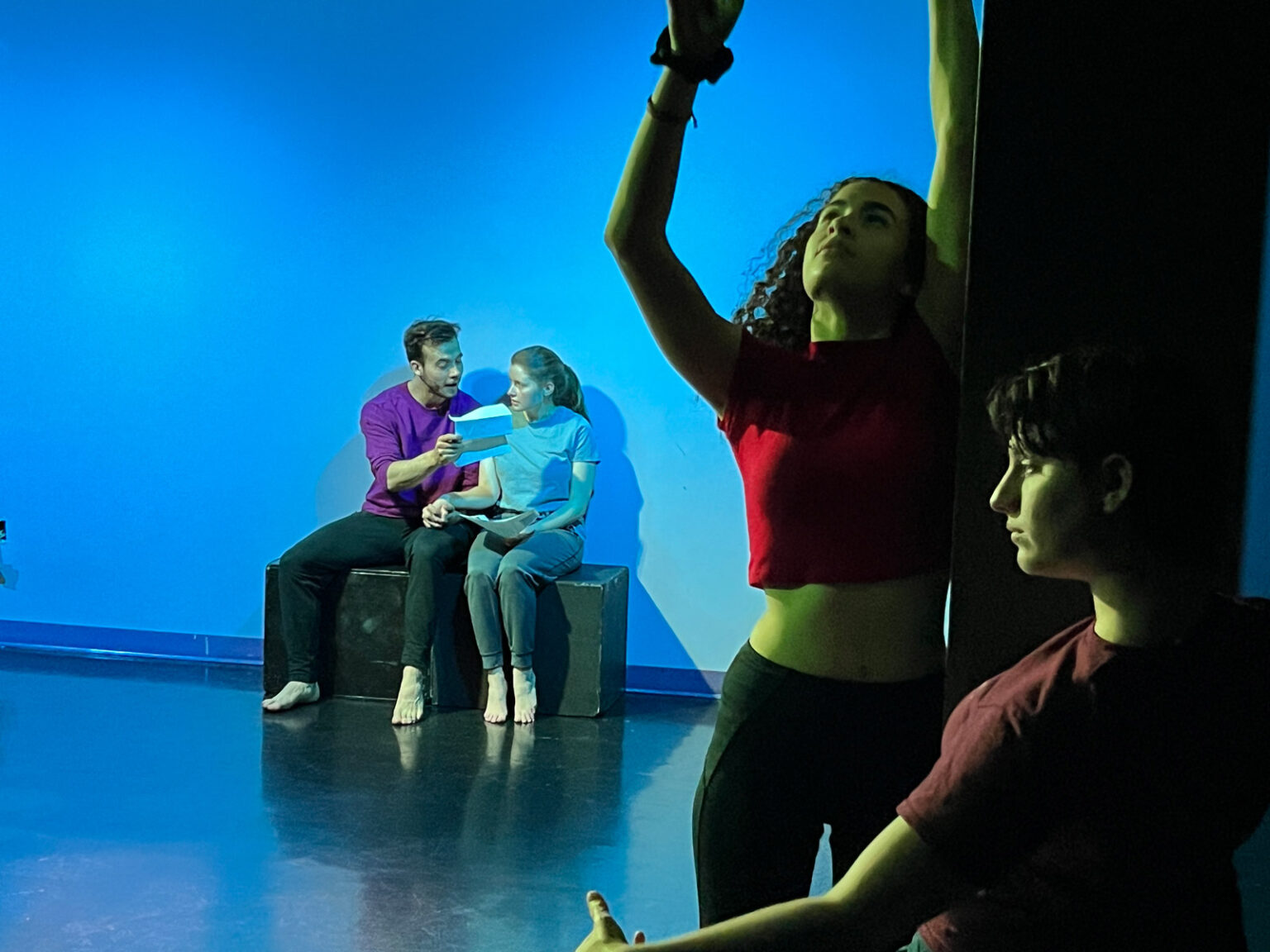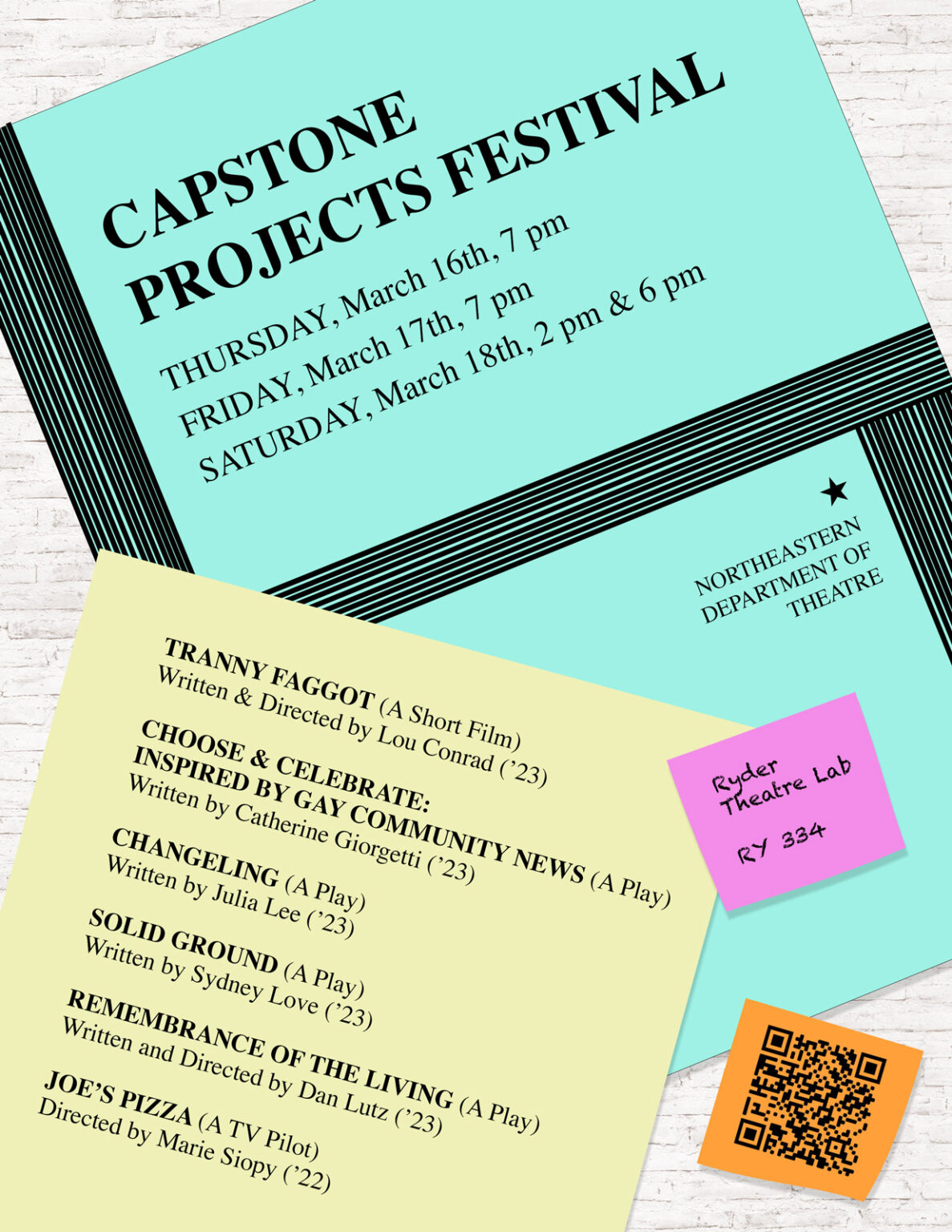The American Sign Language (ASL) Program curriculum is an intensive program of study dedicated to preparing individuals to interact in a positive and supportive manner with members of the American Deaf Community. This Program is designed to assist students in acquiring competence in American Sign Language, developing an understanding of the American Deaf Community and its culture, and applying their linguistic and cultural skills and knowledge to a particular academic area of study.
This major is designed for students who want to combine an understanding of the American Deaf Community and its culture to the study and making of theatre, including performance, design, and production. It offers both classroom and experiential learning on the creative, social, and linguistic relationship between theatre and the American Deaf Community. Students may study acting, dramatic literature, and production design to develop the skills to be professional ASL/English interpreters and/or performers for theatrical productions.
Learning Outcomes
- Apply a broad and deep knowledge of theatre as an art form to their work, including:
• Foundational skills in performance, design, and production
• Comprehensive understanding of theatre history, theory, and literature
• Oral, visual, written expression of ideas with clarity and originality - Make theatre with integrity
• Create or interpret a play
• Collaborate generously
• Apply a personalized technique to the process of making imaginative, innovative theatre - Make informed choices as theatrical entrepreneurs through professional readiness
- Reflect on the cultural, social, and ethical impact and contributions that theatre has made to societies and communities
Co-op Opportunities
- Disney ABC Television Group
- Actor’s Shakespeare Project
- American Repertory Theatre
- Arts Boston
- Boston Ballet
- Boston Lyric Opera
- Bridge Repertory Theater
- The Broadway League
- Center stage
- Central Square Theatre
- Citi Center for the Performing Arts
- Classic Stage Company
- Commonwealth Shakespeare Company
- Company One
- Dixon Place
- Hanover Theatre
- Horton Lees Brogden Lighting Design
- Huntington Theatre Company
- Lincoln Center
- Manhattan Theatre Club
- Miami Theater Center
- New Repertory Theatre
- Paramount Theatre
- Salem Theatre Company
- Second Stage Theatre
- Speakeasy Stage
- StageSource
- Stoneham Theatre
- Theatre Communications Group
- Theatre Offensive
- Vineyard Theatre
- Zeitgeist Stage
Career Opportunities
- Actor
- Director
- Playwright
- Scenic Designer
- Costume Designer
- Lighting Designer
- Arts Administrator
- Singer
- Dramaturg
- Stage Manager
- Technical Director
- Stagehand
- Production Manager
Multidisciplinary Skills
Collaboration
Empathy
Writing
Script analysis
Voice and speech
Movement
Acting
Research
Technical theatre
Design
Directing
Stage management
Singing
Stage combat
Critical thinking

